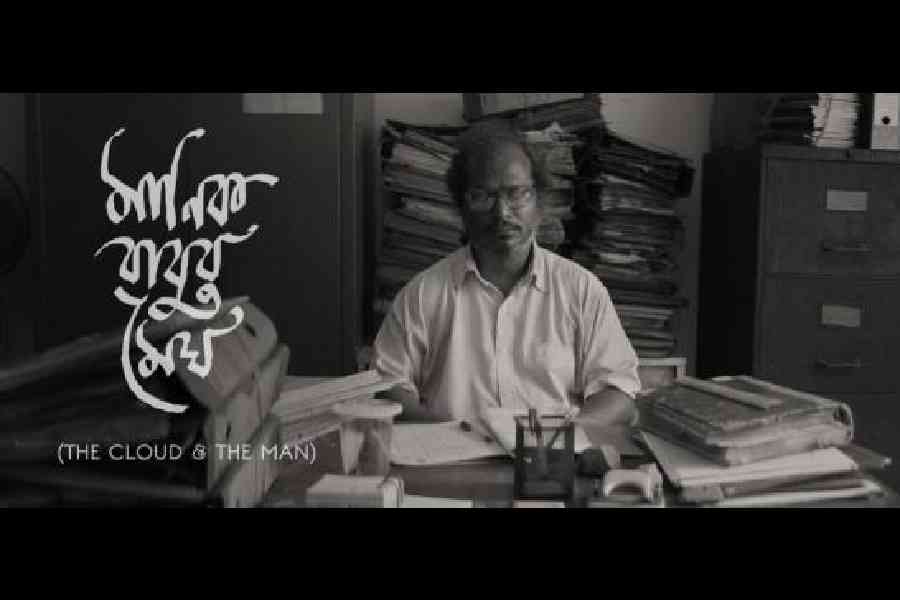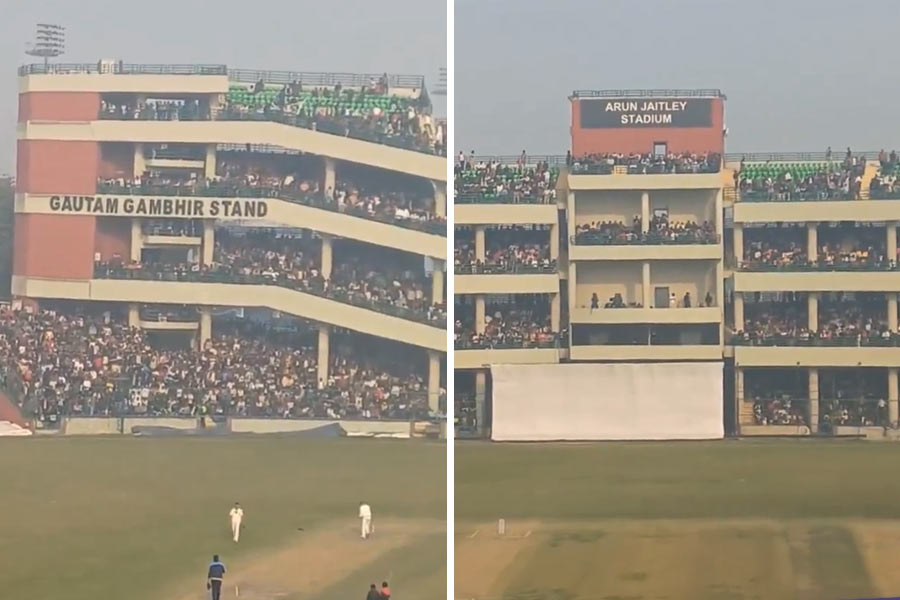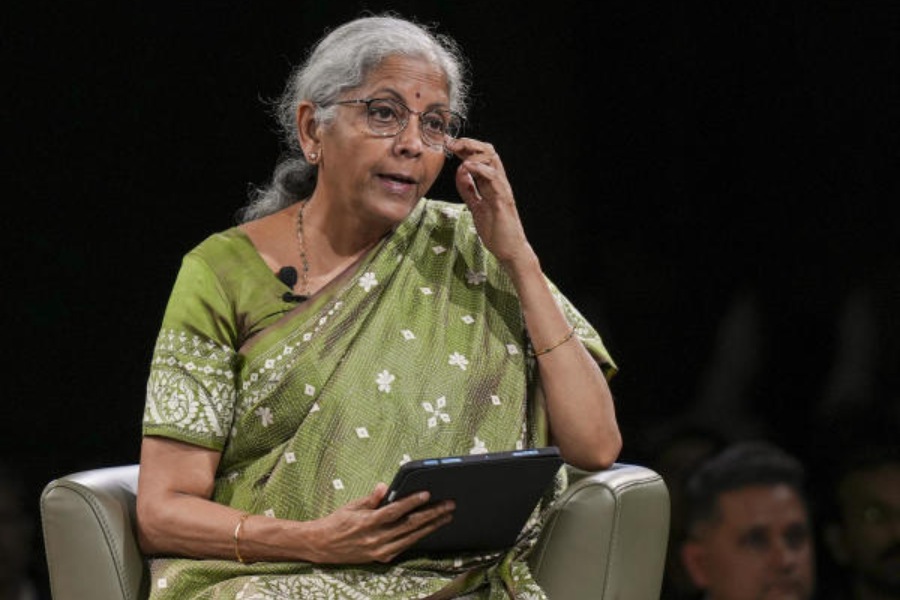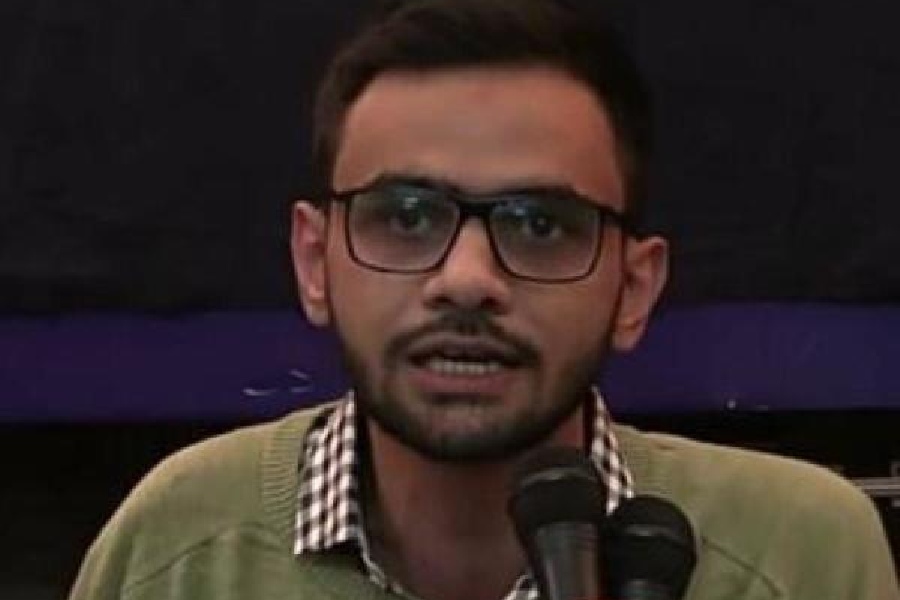O Captain, My Captain!”
This is an ode to my guru, the actor Chandan Sen, who plays the titular role in the film Manikbabur Megh, directed by Abhinandan Banerjee and produced by Bauddhayan Mukherji, Monalisa Mukherji and Little Lamb Films. As an acting-practitioner and an ‘artisan’, I am writing these words in absolute awe and wonder. And I think, every student of acting, every aspiring actor or budding artiste must embark on this journey of silence that Sen takes us through with his performance in the film. As a member of the audience, I feel the words ‘acting’ or ‘performance’ seem like understatements while speaking about Sen’s portrayal of Manikbabu.
Eyes! The eyes of an actor. The eyes that make you want to take a dive and embark on the journey of a lifetime. Manikbabu’s eyes. I don’t know Manikbabu. I’ve never heard of someone like him. I’ve never seen someone who even resembles this person. But this is his story. His story of love and loss. But who is he? How does he live within and beyond the boundaries of his dilapidated house? What does he cook for lunch? How does he grieve over his father’s demise? What does he feel when he sniffs his favourite leaves? When we walk into a theatre hall and start watching the stories of multiple characters, we are introduced to different lives. Films tell us stories of people who we’ve never met, never known and yet we agree to delve deep into their living. That is the magic of art. It is through the lens of Abhinandan Banerjee and his team that I get to know about Manikbabu. And it is Chandan Sen who removes ‘himself’ and creates a character from scratch to engage us in a seamless one hour thirty-eight minute experience. When I look at those eyes, it feels like I know Manikbabu.
There is not a single flashback scene in the film depicting his childhood, teenage or mid-life, but Sen’s eyes tell me everything about this person without indulging in reminiscence. As an audience, those deep, meaningful eyes are enough for us to understand what this man has been through all his life. And in true sense, you get a broader view of the person Manik is, while the narrative deals with just a few months of his life. There lies the beauty of Banerjee’s writing and storytelling. His team never infantilizes the viewer’s understanding and starts talking about the central character’s journey, abruptly. And there lies the magnanimity of my ‘captain’s ability to live the character truly. His eyes act as the gateway to the past of Manikbabu, carrying all the memories of his childhood, traumas of his teenage days and his tales of loving and losing.
You seldom come across such powerful eyes in cinema. Especially, in a film where non-verbal communication complements the narration, the actor’s eyes must speak a thousand words. I’ve known Chandan Sen for as long as I can remember. I have known him as my ‘guru’, mentor, my uncle, my friend-philosopher-guide, my director, one of my most favourite actors, a great playwright, a visionary and most importantly as a father-figure. But where was he in this film? I didn’t see the Chandan kakai I’ve known and loved all these years for even a split second on screen. And that is the magnitude of his idea of ‘living the character’. He succeeds in washing every bit of his existence to wear the flesh of Manikbabu. And parallely, he uses his expertise, the years of training he has received from veterans like Utpal Dutt and Ramaprasad Banik, the skills he has lovingly caressed for years and his child-like soul to make the character ‘alive’!
To aspiring actors, it seems like a masterclass. Maybe I want to have that amount of precision someday. Because not many actors can blend the adjacent and excruciating processes of continuously shedding oneself to become the character and exploiting oneself to feed the character. Only when an actor reaches that amount of clarity within himself, can he deliver something like this. And that is the inspiration for young ‘artisans’ like us.
The love-making scene between Manikbabu and his beloved, is a piece of visual storytelling that will be engraved in my mind and heart for years to come. Sen’s use of physicality in that brief scene somehow conveys the depth of love served in this cinema. I would urge everyone to not miss this wonderful work of art. Witness how Abhinandan Banerjee’s use of the macro-view into the life of an individual serves as a universal allegory. Manikbabu and his beloved paint the picture of ‘homelessness’— a burning issue in the world till today.
Eyes like these are not often seen in cinema. Thus, it is important to watch Chandan Sen as Manikbabu on screen. Allow yourself to immerse in that experience that does not meet the eyes often. Maybe I am biased. Maybe the jury members of the 19th Pacific Meridian Film Festival, Russia or the ones at NORGS Festival of Iran were biased when they awarded Sen the Best Actor Award after watching hundreds of films from all across the globe. Maybe, who knows? But it is high time we assign credit to the people who deserve it. We praise them once and we forget to show our support consistently. Why don’t we flock to the theatre halls when more performances of these artistes are showcased? It is important for us to watch the work of our favourite artistes while they are still here, living and working and delivering such magic in the age of ‘eight-second Reels’.
I remember, when Chandan kakai was shooting for The Cloud and the Man in April, 2019, he used to talk at length about the process of performing such a character on screen. These conversations gave me an insight into how much of ‘himself’ he was simultaneously losing and gaining as an actor. Much of the performance-oriented training I have received from him, involves working with the ‘unspoken dialogue’ or analysing the importance of the ‘melody of silence’. As his student, I have seen him working with silence and the ‘unspoken’ for years. Now the world stands witness to the genius of this ‘performer’ with his portrayal of Manikbabu.
A very veteran thespian once told me: ‘You’re lucky to have a teacher like Chandan! Learn as much as you can from him!’ Yes, I am lucky — to be his student, his friend and son. I am humbled to be the trainee of a teacher who still believes in practice, passion, training, philosophy and patience in this world of ‘instant-delivery’! Yes, I am emotional and numbed at the same time. It seems like ‘the circle of life’— me talking about my teacher.
Here’s to you ‘my captain’! May you keep inspiring us always.











